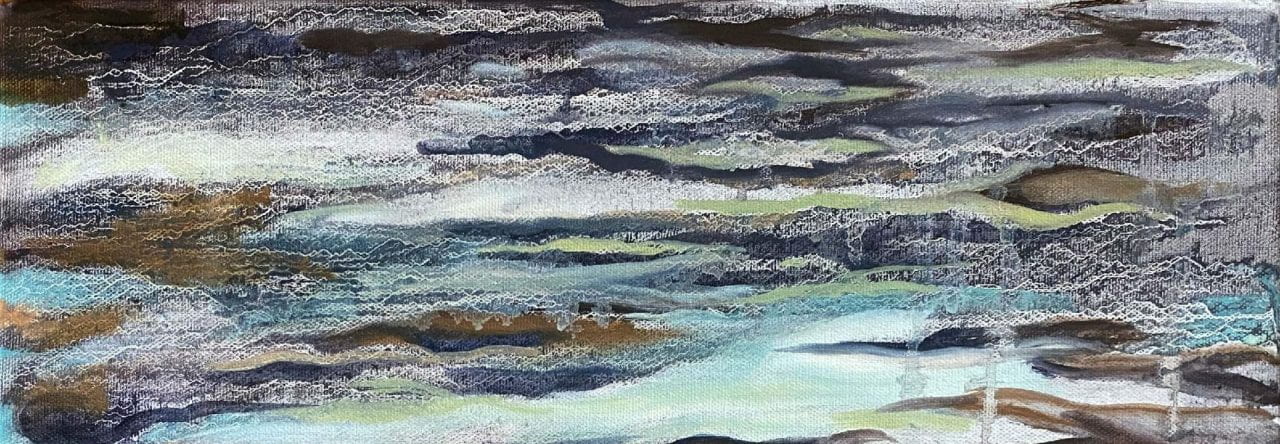“What business are you really in?” For me, it isn’t the answer that is important, but really the bravery and risk in confronting the currencies associated with one’s self. Though I have been unable to answer the question, it still haunts me, sticks to me like a haint, or better, as a fairy godmother would, always looming, but for good reason. I found this question scribbled in the corner of a piece paper in Octavia Estelle Butler’s archives at the Huntington Library and have carried it with me hence.
Perhaps, I tell myself, I am in the business of inquiry and uncovery, of searching and finding and showcasing. Specifically, I am thinking on the former U.S. Poet Laureate Tracy K. Smith’s book, Wade in the Water— a collection of poetry that includes transcripts of letters written by or to Black union soldiers during the Civil War. The poet’s choice to publish unseen and unaltered historical correspondences crafts poetry that reaches beyond where we know poetry to go. It is a way of using a platform to highlight what was already poetically brilliant in its own right. The book provides a necessary and captivating reminder of American History, untouched. Poetry, as the business of truth-telling. I suppose Butler’s gift of inquiry and the precedence set by Smith, is the lineage moving through the poems in reflection / abyss / vision / legacy.
Having had the humble and exciting pleasure to serve as The Center for the Study of Slavery & Justice’s Heimark Artists-in-Residence allowed me and my collaborate, Dara Bayer, to embark back in time in exploring the life of Octavia Estelle Butler through Butler’s own unaltered historical documents. To say Butler’s archive is overwhelming is an understatement. Understand, our glorious ancestor kept every-single-thing. It is a privilege, at best, to pour over her photos, financial documents, drafted manuscripts, greeting cards, horse drawings, diary entries, newspaper clippings, her desires, her goals, her ideas and her fears. It is deeply intimate and spiritual through a liminal lens of time.
In addition to being spirited by Butler’s self-scrutiny, I felt drawn to many questions within Butler’s archive. Written in the margins of notes, in diary entries, on manuscripts, these questions became my way of speaking with Butler’s transcendent of time, space, and experience. With the start of a new year and a naturally pensive mind, I felt myself extremely reflective as each question greeted me. I felt weighted with responsibility as I touched items that belonged to her and by the conversations she was forcing me to have with her, Dara and myself. “What business are you really in?” I became intrigued by these “conversations” and with Butler’s own obsession with obsessions (cycles, succulents, patterns). By my last visit into the archives, I had tracked nearly four hundred questions I had found written throughout my brief time in the archives. The questions appear italicized and unaltered throughout the poems.
I wanted to share with folks who may lack the financial and academic freedom to spend time reading the maps Butler left. My goal with this body of work is to move through the cycles of reflection, abyss, vision, and legacy while showcasing the brilliance of Butler whose scribbles are worth preservation. In my responsibility to Butler, to Dara, to myself, to my mother, our people, and to truth-telling, it became necessary for me, through my own work, to also include the voice of Octavia Butler. This body of work is an experiment in what happens when a Black woman interrogates herself. Does she become a better version of herself? Does she create a better version of the world? And what of the lineage of Black women and girls who come afterward? Is this her legacy? Does Butler’s interrogation of self allow me to do the same? And does that allow the same for you?
My hope, when moving through reflection / abyss / vision / legacy is that one might be able to hear my voice in conversation with Dara Bayer and the work of Octavia Estelle Butler. My greatest desire is that each reader might be able to find their own answers in the silence following the questions.

